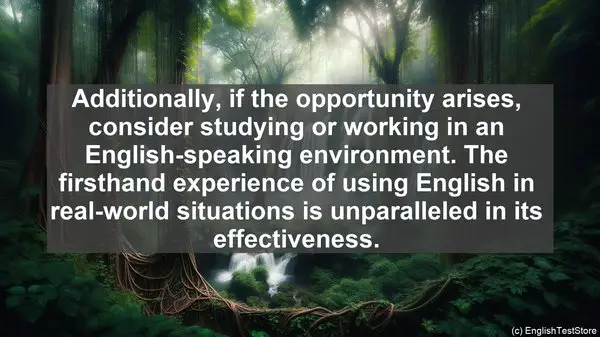Introduction: The Importance of English Proficiency in Finance and Economics
Welcome to today’s lesson, where we’ll be exploring the top 10 methods for mastering English usage in the fields of finance and economics. As the global economy becomes increasingly interconnected, a strong command of English is essential for success in these industries. Whether it’s understanding complex financial concepts or effectively communicating with international counterparts, English proficiency is the key that unlocks numerous opportunities. So, let’s dive in and discover the strategies that will help you become a proficient English user in the world of finance and economics.

1. Extensive Reading: Building Vocabulary and Contextual Understanding
Reading extensively is a tried and tested method for enhancing language skills. In the context of finance and economics, it serves a dual purpose. Firstly, it exposes you to specialized terminology, helping you build a robust financial vocabulary. Secondly, it provides valuable context, allowing you to understand how these terms are used in real-world scenarios. So, make it a habit to read financial news, industry reports, and academic papers. The more you immerse yourself in these texts, the more your language skills will flourish.

2. Active Listening: Grasping Nuances and Accents
In the realm of finance and economics, effective communication is often conducted through spoken words. However, the diversity of accents and the complexity of financial jargon can pose challenges. That’s where active listening comes in. By regularly engaging with podcasts, webinars, and lectures, you’ll not only improve your comprehension but also become familiar with different accents and speech patterns. This will prove invaluable in real-world scenarios, where you’ll encounter a multitude of voices and styles.
3. Writing Practice: Articulating Thoughts with Precision
The ability to express ideas clearly and concisely is highly valued in the finance and economics sectors. Writing practice is an excellent way to hone this skill. Start by summarizing articles or research papers, ensuring you capture the main points accurately. As you progress, venture into more complex tasks, such as crafting reports or analyses. The feedback you receive, be it from peers or mentors, will be instrumental in refining your writing style and ensuring your messages are conveyed effectively.
4. Participating in Discussion Forums: Sharing Insights and Gaining Perspective
Online discussion forums, such as those on finance and economics platforms, provide an ideal space to engage with like-minded individuals. By actively participating in these forums, you not only contribute your own insights but also gain valuable perspectives from others. This exchange of ideas not only enhances your subject knowledge but also sharpens your communication skills as you learn to articulate your thoughts in a structured and persuasive manner.
5. Utilizing Language Learning Apps: Interactive and Engaging Learning
In today’s digital age, language learning apps have revolutionized the way we acquire new skills. These apps offer a range of interactive exercises, from vocabulary drills to grammar quizzes. The advantage is two-fold. Firstly, the bite-sized nature of these activities makes them perfect for fitting into a busy schedule. Secondly, the gamified elements, such as leaderboards and achievements, add an element of fun and motivation to the learning process.
6. Seeking Feedback: Continuous Improvement through Constructive Criticism
Constructive feedback is a powerful tool for growth. When it comes to language proficiency, seeking feedback is crucial. Whether it’s from a language tutor, a mentor, or even a language exchange partner, the insights they provide can help you identify areas for improvement and rectify any persistent errors. Additionally, platforms like online writing communities offer opportunities for peer review, allowing you to benefit from a diverse range of perspectives.
7. Watching Finance and Economics Documentaries: Visual Learning and Conceptual Understanding
Sometimes, concepts are best understood through visuals. Finance and economics documentaries offer a wealth of information, presented in an engaging and accessible manner. By watching these documentaries, you’ll not only deepen your understanding of complex topics but also familiarize yourself with the language used in these domains. Pay attention to the explanations and examples provided, as they often illustrate key principles in a memorable way.
8. Joining Toastmasters or Public Speaking Clubs: Confidence and Eloquence
Public speaking is a skill that transcends industries. Joining a Toastmasters or public speaking club can do wonders for your communication abilities. These clubs provide a supportive environment where you can practice delivering speeches, receiving feedback, and refining your presentation style. The confidence and eloquence you gain through these experiences will not only benefit you in professional settings but also in everyday conversations.
9. Translating Financial Texts: Bridging the Gap between Languages
For those who are bilingual, translating financial texts can be an excellent exercise. By taking a piece of writing in one language and rendering it accurately in another, you not only strengthen your language skills but also deepen your understanding of financial concepts. This process of translation requires not just linguistic proficiency, but also a solid grasp of the subject matter, making it a comprehensive learning experience.
10. Immersion: Surrounding Yourself with English in Everyday Life
Finally, one of the most effective methods for mastering any language is immersion. Surrounding yourself with English in your daily life, be it through watching movies, listening to music, or even changing the language settings on your devices, creates a constant exposure that accelerates learning. Additionally, if the opportunity arises, consider studying or working in an English-speaking environment. The firsthand experience of using English in real-world situations is unparalleled in its effectiveness.
